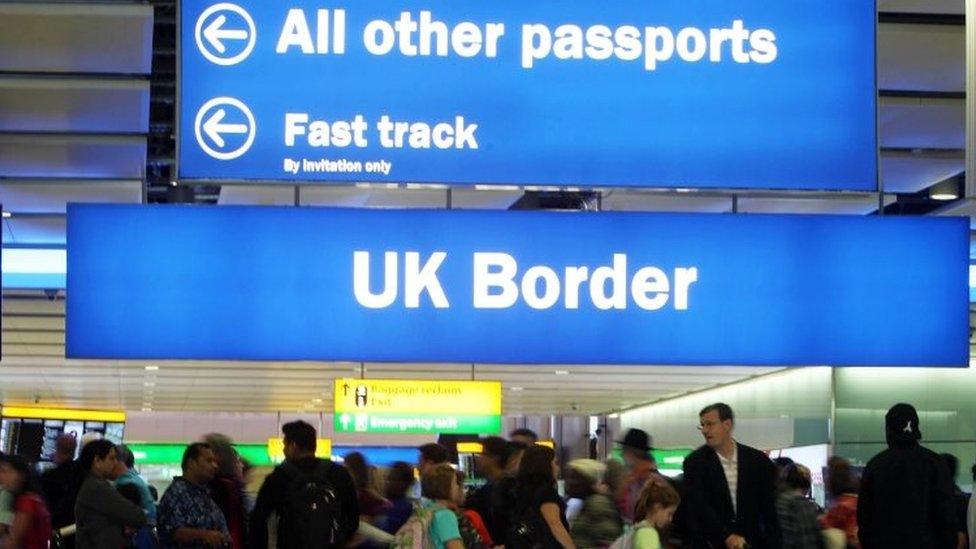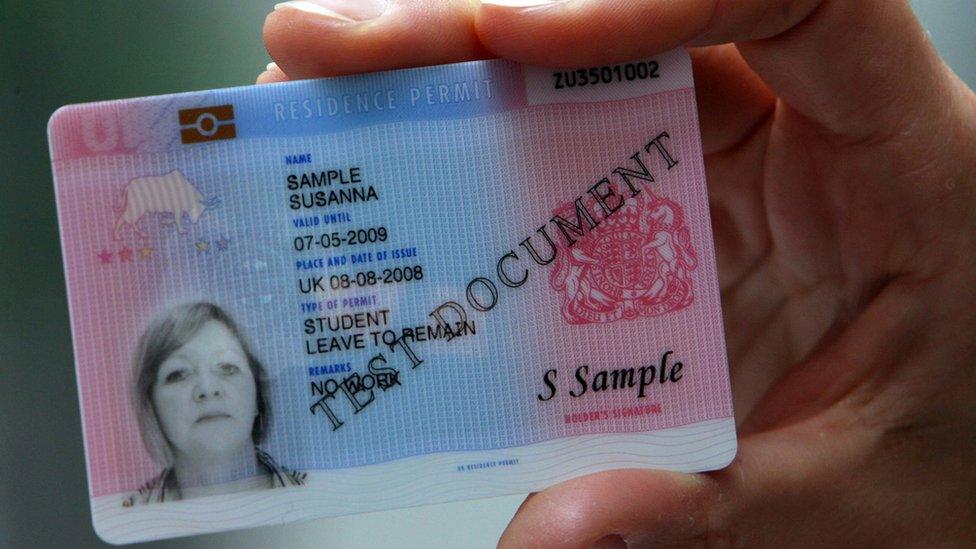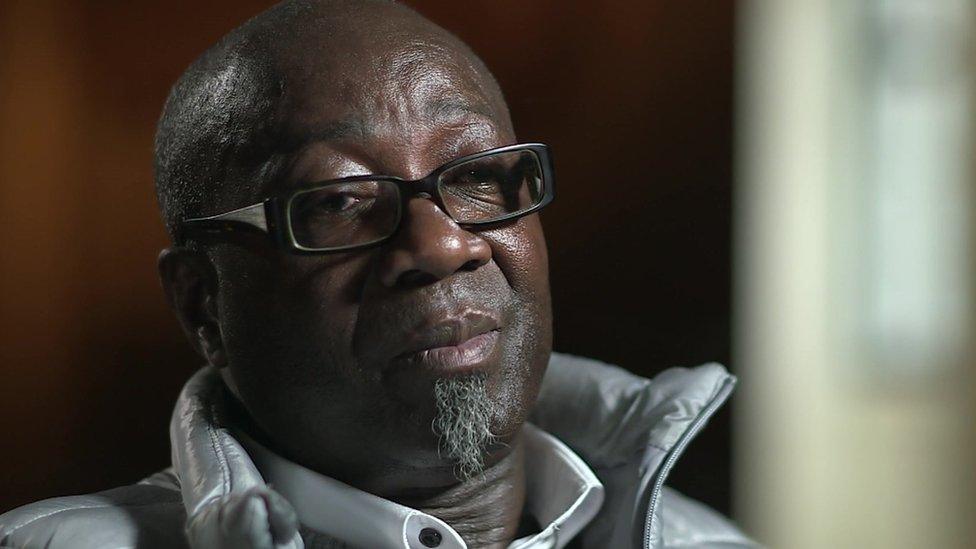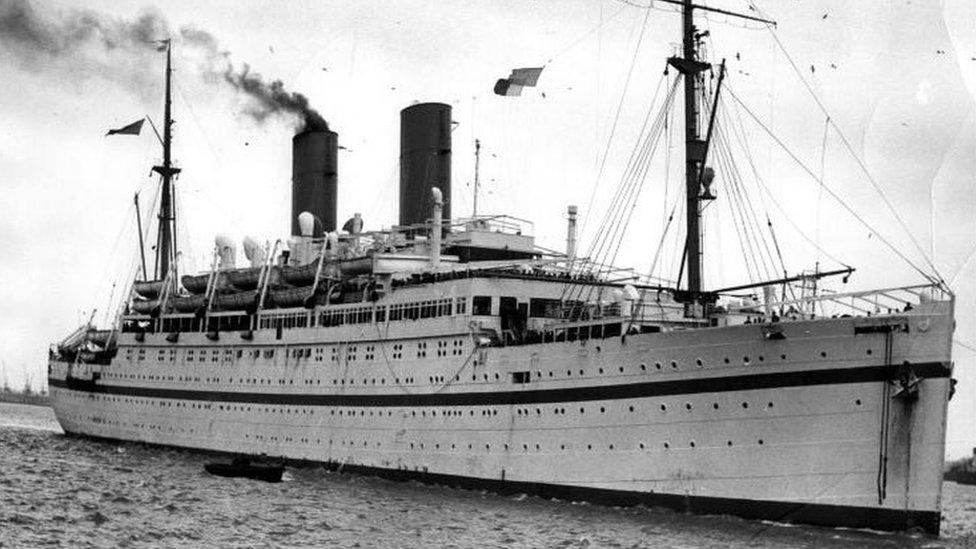Call for UK citizen ID system after Brexit
- Published

The ID registration system for EU citizens in the UK after Brexit should extend to Britons to avoid another Windrush scandal, a think tank says.
EU citizens in the UK will have to pay £65 and join a registration scheme to stay after the UK's transition period.
In a report, Policy Exchange said the scheme should be rolled out to Britons on an initial voluntary basis.
It said a "proper national ID system" would have "prevented the harassment of the Windrush victims".
The Windrush scandal saw migrants from Commonwealth countries - who had permission to settle in the UK - wrongly declared illegal immigrants.
The Home Office had not issued paperwork to migrants entitled to live in the UK, and in 2010 landing cards belonging to Windrush migrants had been destroyed.
As a result some were threatened with deportation, the loss of their jobs, and others were denied benefits and healthcare on the NHS.
In May it was revealed that at least 63 members of the Windrush generation - named after the boat that brought the first Caribbean migrants to the UK - had been wrongfully removed since 2002.
The scandal put pressure on former Home Secretary Amber Rudd to resign. She eventually left her post after it was revealed she "inadvertently misled" MPs over targets for removing illegal immigrants.
The UK is due to officially leave the European Union at 23:00 GMT on 29 March 2019.
EU citizens who have arrived by the end of the transition period - December 31 2020 - but do not have five years' residence, can seek to stay until they have, at which point they can seek settled status, under plans announced by Home Secretary Sajid Javid.
People will be asked to prove their identity, whether they have criminal convictions and whether they live in the UK.

The Labour government introduced a £5bn ID card scheme but it was scrapped in 2010
In the Policy Exchange report, David Goodhart, head of demography, immigration and integration at the right-leaning think tank, said: "We strongly recommend reopening the debate about ID management to reassure people that we know who is in the country, for how long, and what their entitlements are.
"A proper national ID system would have prevented the harassment of the Windrush victims."
There have been periodic calls for the return of identity cards ever since they were scrapped in the UK in 1952.
A £5bn national identity card scheme was introduced by the Labour government in 2006, but Theresa May abolished it when she became home secretary in 2010.
Other suggestions form The Border Audit: A Post-Windrush Review include:
A more "decisive" removals process, plus reforms to allow applications for asylum from outside the UK and private sponsorship of them
An amnesty for illegal immigrants who have been in the UK for 10 years or more
More cash to pay illegal immigrants to leave and a joint scheme with the Department for International Development to help them set up businesses in their countries of origin
A British version of the US Electronic System for Travel Authorisation (ESTA) that allows non-UK citizens to use e-gates at borders and made it quicker for "low-risk groups" to enter
A reduction in citizenship application fees from £1,500 per person and almost £5,000 for a family with two children to a level "more closely aligned to public policy, not just revenue needs"
Mr Goodhart said: "Illegal immigration is not only unfair on legal immigrants who wait their turn in the queue and the employers and businesses who play (and pay) by the rules, it also fosters a twilight world of criminality, dependence and exploitation in which modern slavery flourishes.
"Combating illegal immigration should be overtly linked to minimum wage enforcement, private landlord licensing and action against modern slavery."
He said that while a general amnesty for the estimated 500,000 illegal residents in the UK would "send the wrong signal", he said "some form of regularisation" should be considered for those who have been here for more than 10 years.
- Published30 April 2018

- Published21 June 2019

- Published19 April 2018

